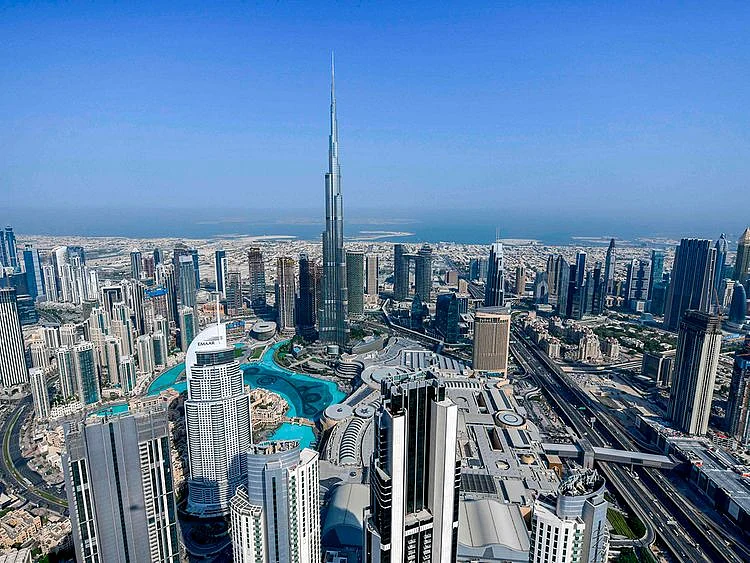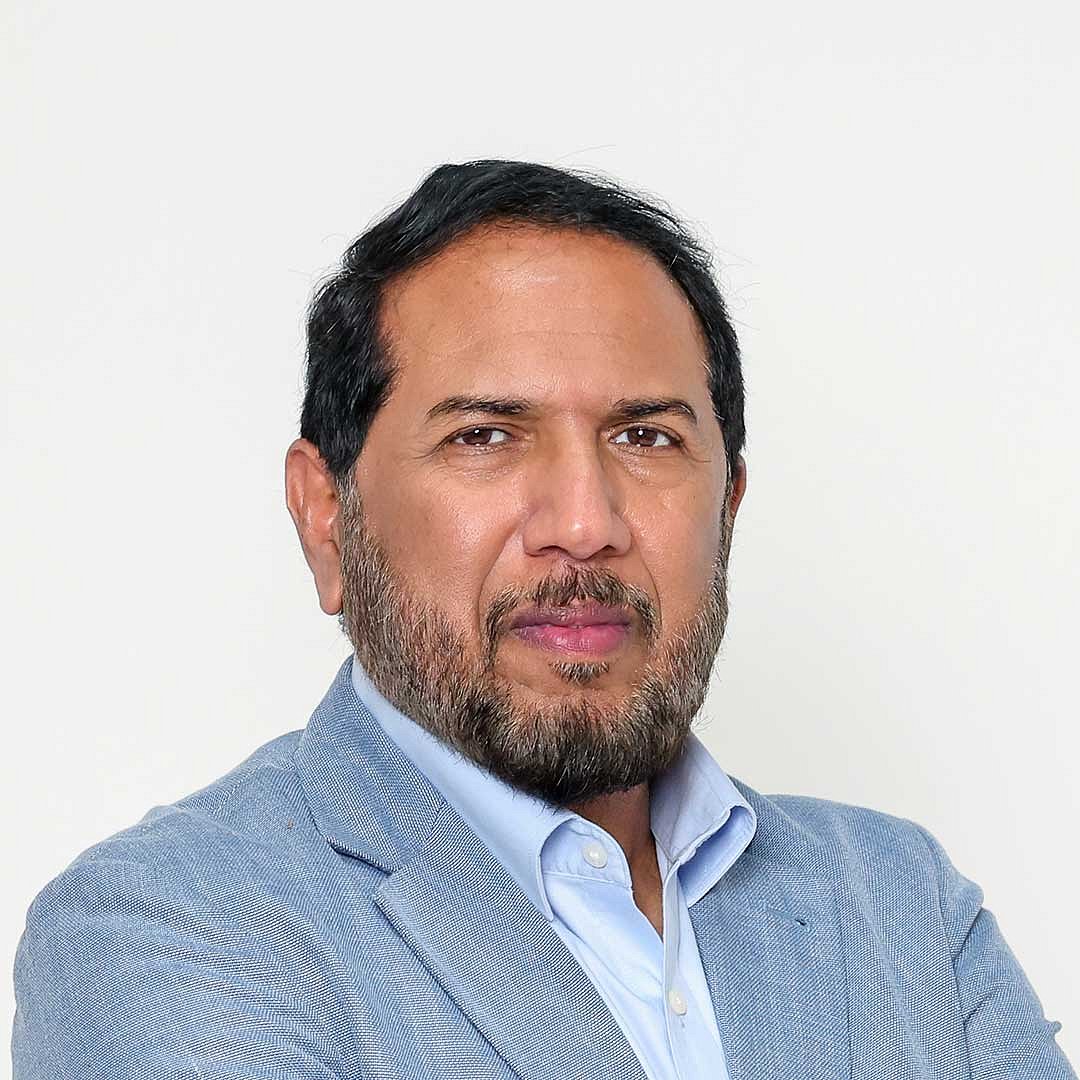Dubai’s vision: Building the world’s best city to live in
Sheikh Mohammed bin Rashid’ s vision places people at the heart of urban innovation

Dubai: Cities, by their very nature, are reflections of human ambition. They rise from the ground as monuments to progress, as spaces where societies converge to work, innovate, and dream. Yet, in an era where urban life is increasingly complex, shaped by rapid technological shifts, environmental challenges, and global competition, the measure of a city’s greatness is no longer just in its economic strength or skyline. It lies in something far more profound: its ability to provide a fulfilling, meaningful, and sustainable life for its people.
This, at its core, is the vision that His Highness Sheikh Mohammed bin Rashid Al Maktoum, Vice President and Prime Minister of the UAE and Ruler of Dubai, laid out during the Mohammed bin Rashid Leadership Forum held in Dubai on Wednesday. His call was bold and unambiguous: to intensify efforts, raise benchmarks, and ensure Dubai becomes not only the world’s most advanced and beautiful city, but the best city to live in.
A vision beyond prestige
Dubai is no stranger to global recognition. It has been celebrated for its record-breaking skyscrapers, futuristic infrastructure, and economic dynamism. But Sheikh Mohammed’s vision is deliberately people-centred. It shifts the focus from prestige to purpose.
He articulated this clearly: Dubai must be a city where children and families thrive, where tourists and traders find opportunity, and where the elderly live with dignity. In other words, a city that embraces all stages of life, all walks of society, and all aspirations under one inclusive framework.
This philosophy of human-centred governance represents a crucial evolution. Many global cities have pursued rapid growth at the cost of quality of life. Traffic congestion, pollution, and social inequality often follow in the wake of unchecked expansion. Sheikh Mohammed’s directives signal a different approach — growth with balance, ambition with compassion, and innovation with inclusivity.
Raising the bar for leadership
At the Leadership Forum, attended by over 1,000 leaders from Dubai’s government and private sectors, Sheikh Mohammed urged officials to redouble their efforts, adopt world-class benchmarks, and ensure measurable progress. This emphasis on accountability and results is part of what makes Dubai unique in its governance model.
Here, leadership is not about managing the present but anticipating the future. Sheikh Mohammed has long insisted that Dubai must nurture leaders who are bold, agile, proactive, and capable of navigating global shifts and creating opportunities from change. “Here in Dubai, we do not pause,” he reminded the audience. Instead, the city equips its leaders to think faster, act decisively, and innovate continuously.
The Forum’s agenda reflected this philosophy, with discussions spanning cultural identity, economic growth, future city development, social cohesion, and digital transformation. Every initiative presented was rooted in one principle: people first. From reimagining education pathways through the Education 33 strategy, to integrating healthcare through Dubai Health’s academic-medical model, to creating cleaner and greener public spaces, the initiatives all serve the well-being of residents and visitors alike.
Redefining urban success
The world is entering a new chapter of urban development. Cities are under increasing pressure to respond to climate change, digital disruption, and demographic shifts. Yet, success cannot be measured by GDP alone. The cities that will lead in the 21st century will be those that redefine prosperity to include sustainability, inclusivity, and liveability.
This is precisely where Sheikh Mohammed’s vision positions Dubai. His directives to reduce pollution, enhance cleanliness, and create calmer urban environments point to a broader understanding: that a city’s strength lies in the comfort and dignity of its people.
Other global cities may excel in certain dimensions such as New York in finance, Tokyo in technology, or Paris in culture but few are attempting to integrate all dimensions as comprehensively as Dubai. The ambition is not to specialise in one field but to serve as a holistic model of urban excellence.
A City rooted in values
Sheikh Mohammed’s vision goes beyond physical infrastructure or service delivery. It is also about shaping the social fabric of Dubai. His call to promote tolerance, compassion, and family cohesion underscores a belief that a truly great city is one where society is harmonious and values-driven.
This emphasis on social cohesion is particularly significant in today’s global climate. Across the world, cities are grappling with polarisation and division. By contrast, Dubai aspires to be a beacon of coexistence, a place where over 200 nationalities live side by side in peace, united by shared opportunity and respect.
Lessons for the world
What makes Dubai’s approach compelling is its potential as a global model. Sheikh Mohammed’s leadership philosophy, anchored in foresight, innovation, and human-centred governance, offers lessons for cities everywhere.
First, ambition must be bold but grounded in people’s needs. Dubai’s transformation shows that success is not about the tallest buildings but the most liveable neighbourhoods.
Second, leadership must be proactive, not reactive. Dubai anticipates challenges and prepares for them in advance, whether through future-ready education, sustainable urban planning, or embracing emerging technologies.
Third, inclusivity must be the cornerstone of progress. A city’s greatness is measured by how it treats its most vulnerable, its children, its elderly, and its diverse communities.
A future defined by determination
Of course, the path to becoming the world’s best city is not without challenges. Rapid urbanisation, environmental pressures, and global competition are realities that every ambitious metropolis must confront. But Dubai’s history has shown that bold goals, when pursued with unity and determination, can yield extraordinary results.
From its transformation into a global trading hub to its emergence as a leader in innovation and competitiveness, Dubai has consistently proven sceptics wrong. Each milestone achieved has been driven by a clear vision, decisive leadership, and a culture of accountability.
Today, Sheikh Mohammed’s call to intensify efforts is both a rallying cry and a reminder: the journey is ongoing. The goal is not simply to build a prosperous city, but to redefine what urban life can and should be in the modern world.
Dubai’s ambition is no longer just about setting records. It is about setting standards. If history is any guide, the emirate will once again deliver, and in doing so, offer the world a living example of how leadership, when truly people-centred, can shape not just a city, but a better future for all.
Sign up for the Daily Briefing
Get the latest news and updates straight to your inbox
Network Links
GN StoreDownload our app
© Al Nisr Publishing LLC 2026. All rights reserved.
